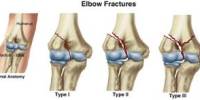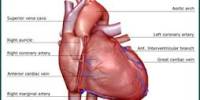Abstract
A descriptive cross sectional study was conducted among purposively selected 135 student nurses of a selected nursing institute of Bangladesh to find out the problems faced by them at their institute. All the respondents were married having HSC level of basic education and most of them were female. Among the respondents 75.6% were of 2nd and 3rd year and rest 24.4% were of 1st year. Majority (86.6%) was Muslim, 10.4% were Hindu and rest 3% was Christian by religion. Among the respondents, more than half had monthly family income within BDT 10000 – 20000, more than one third had BDT 10000 and rest had more than BDT 20000. By problems at hostel, 94.8% respondents reported that there is no provision for tea/snacks in between meal, 76.3% complaints for no reading room, 75.6% for unclean bathrooms/ toilets, 75.6% for unhygienic food, 28.1% for lack of security, 29.6% for lack of entertainment recreational facility (TV/play), 53.3% for congested accommodation. By classroom related problems, 48.1% told that the class rooms are congested and 62.2% told that there is lack of library facility, 91.1% for lack of clinical teacher in hospital and 84.4% for inadequate supplies of equipment and teaching aids. During training, 38.5% complaints that teachers are not well understood, 57.0% told about inadequate English language ability of teachers and rest 91.9% for inadequate knowledgeable and experienced teacher. During community program the problems faced by the respondents are as lack of awareness among community people (76.3%), lack of specialized community nurses (100%), lack of transportation facility (74.1%), lack of resources according to the stated course outline (85.9%), bullying by client’s relatives (31.9%). During hospital duty as stated by the respondents are workplace bullying by patient/ and attendants (34.1%), lack of proper guidance by the clinical teachers (48.1.1%), excess visitor/ attendant (85.9%), shortage of clinical teaching (94.1%), security problem (74.8%), work load (65.2%), ill behavior of supervisor (49.6%), On solving the problems, the suggestions from student nurses were ‘Recruitment of adequate number of qualified and experienced teacher’, ‘ensure sufficient teaching aids’, ‘Ensure security at hostel and hospital’, ‘Improvement of hostel facilities (waiting room, food, prayer room)’, ‘Computer with internet’ and ‘Adequate and ‘Improve college environment (library, class room, game)’. Renovation of hostel facilities and deployment of adequate number of trained and experienced teacher with adequate teaching aids are recommended.
Introduction
Nurses are one of the main care providers in the health care system. Nurses form the backbone of health care services representing over 50% of the health professionals Student nurses are the foundation of nursing services. But, they are facing their problem at academic, clinical and community level. So, every year a number of student nurses drop their study that develops shortage of future nurse in our country.
There are at present 2,213 public and private hospitals with a total capacity of 51,684 beds. There is only one bed for 2,665 people, one doctor for 3012 patients and one nurse for 6342 patients in the country according to government estimates. WHO launched the “Strategic Direction for Strengthening Nursing and Midwifery Services 2002-2008” (Resolution 54.12) targeting 5 main areas to scale up and enhance the development of nursing and midwifery services to respond to health needs on the basis of sound scientific and clinical evidence.
Nursing Education is based on modern trends and developments in medical, health, social and educational sciences in order to keep pace with the changing needs of society and advanced
technology. The education process involves knowledge application, development of psycho-motors skills and subsequent change in attitude and behavior in the desired direction. The development of moral values (e.g. Responsibility, Honesty, Loyalty, etc.) is an important component of helping nursing students to become efficient nurses and good citizens. Helping nursing students to achieve their highest potential, both personal and professional, enable them to help themselves, their profession and society. Nursing Education is a dynamic, continuous learning process of acquiring nursing and midwifery knowledge and skills that bring about change of student behaviors. Nursing education requires active and life-long learning and new learning builds on previous knowledge and experience. Learning is in nursing educations best achieved when student is motivated and ready to learn, where student’s dignity is respected; teaching strategies and learning experiences are carefully selected to facilitate critical thinking; and professional or clinical role modeling is offered.
The Nursing profession in Bangladesh has reached at sustainable level. This profession has demonstrated it’s will to succeed in a creditable force within the health care team. Nurses of Bangladesh are now ready to contribute in improving the quality care of clients for the achievement the goal of the National Health Services. The registered nurses are working in public & private sectors in different posts & position in different Hospitals, Colleges & Institutes from primary level to tertiary level of health care delivery system of Bangladesh.
There are 46 nursing institutes in the government sector and 26 private Institutes are offering three years Diploma in General Nursing and one year Diploma in Midwifery/Orthopedic. The total intake of students is 2835 each year based on a central admission system. There are seven Colleges of Nursing affiliated to different university of Bangladesh offering four years Bachelor of Science Degree (BSc) in Nursing with a total of 700 seats. 3 Post-basic College of Nursing (Student intake –125). Total enrollment of B.Sc Nursing and post-basic B. Sc Nursing students are 1075 per year each year to prepare professional nurses with leadership, management and teaching abilities.
Attracting qualified people into nursing is the first step in ensuring that adequate numbers of registered nurses (RNs) are available to meet the needs of hospital patients. The assessment and supervision of student nurses during clinical placement remains a complex activity. The student needs to be assessed thoroughly to identify his or her strengths and weaknesses. Further, this assessment should be conducted in circumstances which allow the student to be at his or her best.
















